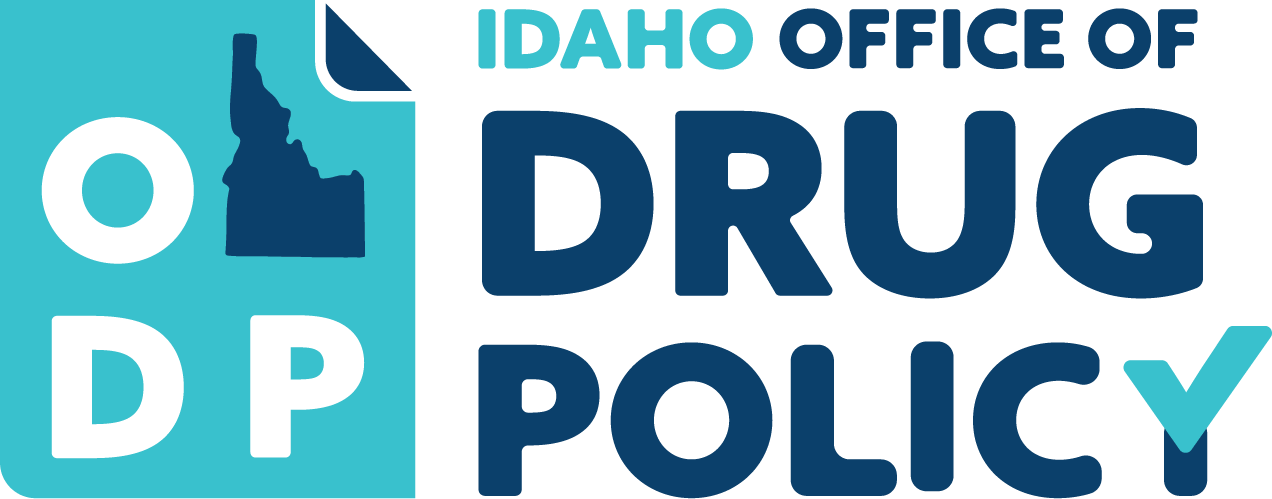Grantee Checklist and Process Guide
- Grantee Checklist for Important Next Steps Before Implementation of Services
- SFY2026 SUPTRS BG Grantee Process Guide: Grantee Guidance on Neighborly, Reimbursement Requests, Quarterly Activity Reports, Program Participant Surveys, CPS and PPS Credentials, Online Trainings and the Learning Management System, and ODP Resources and Communication Channels
- Primary Prevention Activity & Training Resource Hub
SFY2026 SUPTRS BG Grantee Onboarding Webinar
Financial Forms
- Vendor Payments Support and Luma Finance Forms can be found at https://www.sco.idaho.gov/LivePages/luma-finance-forms.aspx
- New grantees need to complete the Initial Vendor Setup (IRS Form W-9) and the Direct Deposit Authorization Form
W-9 and Direct Deposit Authorization Form submission instructions:
- If you want to receive grant payments via check, just submit a copy of your organization’s W-9. If you want to receive grant payments via direct deposit, you will need to submit a W-9 and the Direct Deposit Authorization Form. Forms can be submitted via email to Jessie Dexter at jessie.dexter@odp.idaho.gov or submitted by mail to the Idaho Office of Drug Policy at 304 N 8th St, Ste #455, Boise, ID 83702
- Direct Deposit Authoriziation Forms need to be submitted with an attached scan of a voided check (not a deposit slip) or bank verification letter of your
checking or saving account number. Form location: https://www.sco.idaho.gov/LivePages/STARS-Forms.aspx - To reduce the risk of fraud, the SCO may contact you to verify the banking information provided using these forms.
Request for Reimbursement Information
- Comprehensive instructions on how to complete a reimbursement request can be found on pages 4-5 of the SFY2025 SUPTRS BG Grantee Process Guide.
- Further instructions on how to complete the Detailed Reimbursement Request JotForm can be found here.
How to Complete Quarterly Activity Reports
Grantee Reporting Timelines & Due Dates
-
- Quarter 1: July 1 – September 30
- Due Date: October 10
- Quarter 2: October 1 – December 31
- Due Date: January 10
- Quarter 3: January 1 – March 31
- Due Date: April 10
- Quarter 4: April 1 – June 30
- Due Date: June 15
- Quarter 1: July 1 – September 30
SFY2024 Quarterly Activity Report Training (41 minutes)
Brief Quarterly Activity Report Tutorial (22 minutes)
Grantees providing direct curriculum-based prevention education (e.g., LifeSkills, Positive Action, Strengthening Families) are required to conduct retrospective surveys with program participants after the completion of each program cohort. These surveys are used to inform the overall SUPTRS Block Grant program evaluation. After the program year providers will receive a summary outcome report of their programs’ survey results.
Survey Documents and Administration Instructions
- SFY2026 SUPTRS BG Grantee Participant Survey Administration Instructions for grantees implementing direct service, evidence-based prevention programs with parents and older youth (in grades 6-12).
- Example Surveys
Parental Consent Policy and Forms
Parental consent must be obtained before the implementation of youth surveys. Providers utilizing surveys for Older Youth (Grades 6-12) must review the Parental Consent Policy for Idaho Substance Abuse Prevention Programs Serving Minors.
- Sample Passive Parental Consent Forms
- Sample Active Parental Consent Forms
SFY2026 Grantee Survey Training
SFY2026 Grantee Survey Training PowerPoint Presentation Slides
Survey Questions
If you have any questions or concerns regarding the surveys, please contact Jessie Dexter at jessie.dexter@odp.idaho.gov or (208)854-3042
When implementing evidence-based programs and practices, it is important to consider fidelity and adaptation.
- Fidelity: The degree to which a program or practice is implemented as intended.
- Adaptation: Describes how much, and in which ways, a program or practice is changed to meet local circumstances.
Evidence-based programs and practices are defined as such because they consistently achieve positive outcomes. The greater the fidelity to the original program design, the more likely the program will reproduce positive results. While customizing a program to better reflect the attitudes, beliefs, experiences, and values of a focus population can increase its cultural relevance, it is important to keep in mind that such adaptations may compromise program effectiveness.
ODP requires that at least one staff member in each organization awarded SUPTRS BG funds must hold or obtain a Provisional Prevention Specialist (PPS) or Certified Prevention Specialist (CPS) credential.
- Grantees that have received SUPTRS BG funding for the past two consecutive years are required to provide documentation that either:
- At least one staff member at your organization holds a current CPS credential, OR
- At least one staff member at your organization is pursuing their CPS credential. This is done by completing the CPS Training Tracker Form to share information on staff training that has been/is planned to be completed in an effort to obtain the required training hours to sit for the CPS exam.
- New grantees, that have not been funded consecutively in the past two years, have 120 days to receive a PPS credential. The PPS credential requires the completion of two free, short courses: 1) Substance Abuse Prevention Ethics; and 2) Fundamentals of Prevention. Both courses are offered via ODP’s online Learning Management System. Send copies of the course Certificates of Completion to Jessie Dexter via email at jessie.dexter@odp.idaho.gov.
Additional information about the CPS and PPS certifications can be found here.
Needs Assessments and Reports
- SFY2022 SABG & PFS Grant Programs Report
- 2021 Idaho Healthy Youth Survey State Report
- 2021 Youth Risk Behavior Survey State Report
- 2021 National Survey of Drug Use and Health (NSDUH) Releases
- 2019 Substance Misuse Prevention Needs Assessment
Evidence-Based Program Resources
- Blueprints Programs for Healthy Youth Development
- Idaho Evidence-Based Practice Selection and Planning Workbook
- CrimeSolutions Programs and Practices, National Institute of Justice
- Office of Juvenile Justice and Delinquency Prevention Programs, OJJDP
- Evidence-Based Practices Resource Center, SAMHSA
- National Mentoring Resource Center, OJJDP
- Selecting Best-Fit Programs and Practices: Guidance for Substance Misuse Prevention Practitioners, SAMHSA
- Finding Evidence-Based Programs and Practices, SAMHSA
Informational Resources
 Official Government Website
Official Government Website
